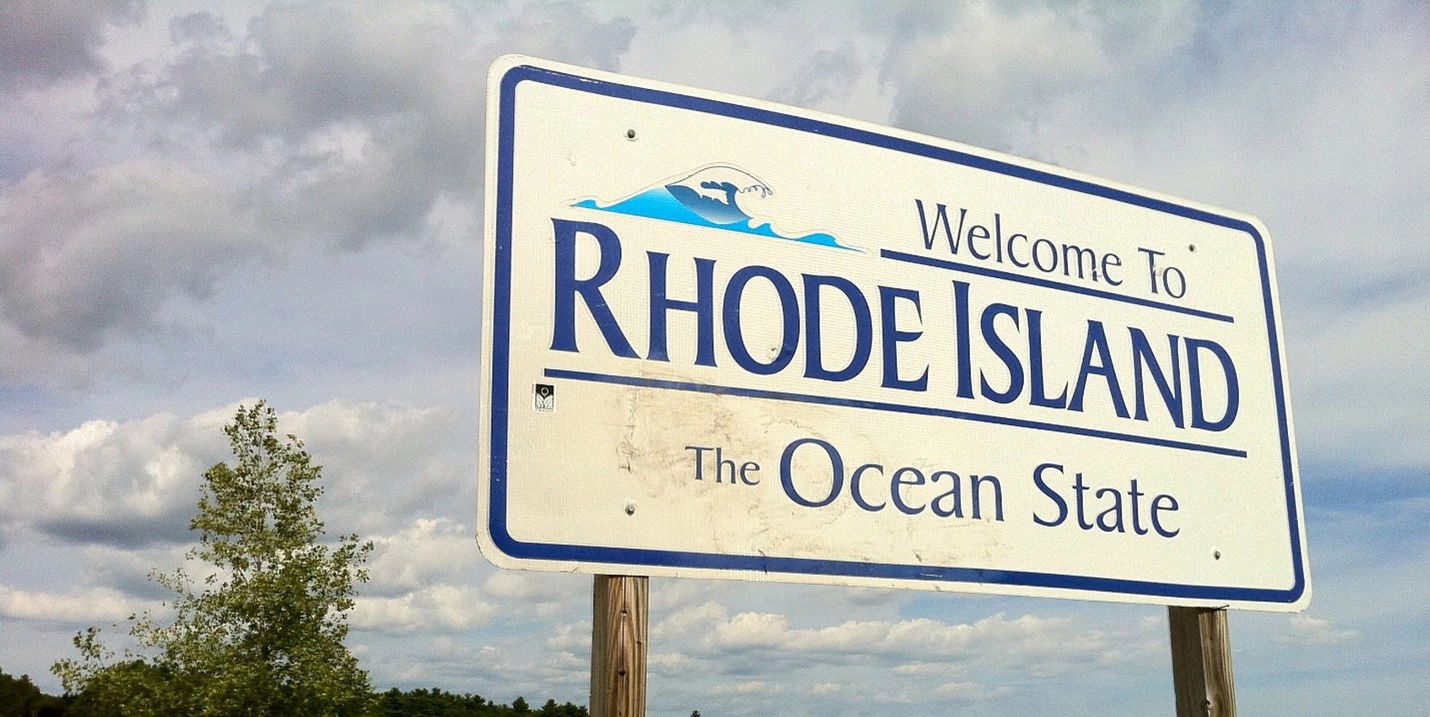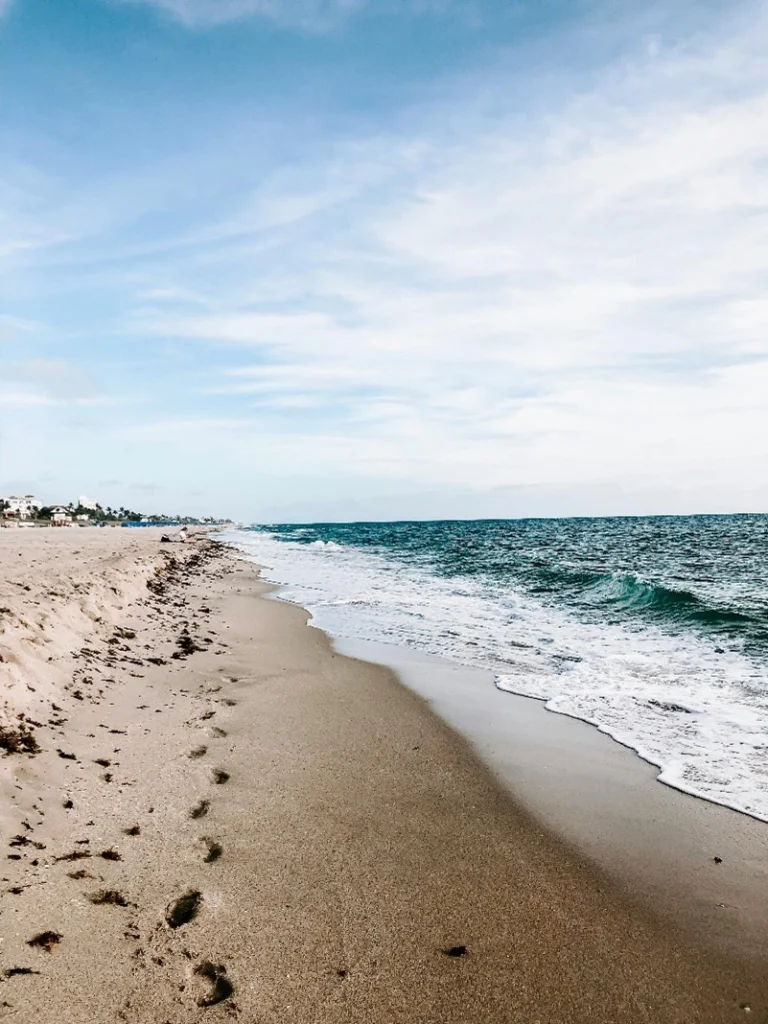
The owners of Rhode Island’s beachfront homes would like to own the beach — all the way out to the water. But last June, Rhode Island law created a public right to access areas of passable shore up to ten feet above the visible high tide line — the line where you can see the seaweed wash up.
This is a big deal. It expands the public’s clear-cut, measurable right to access the shore.
Now, a year later, there’s a new law to fortify that public right. On June 17, 2024, the state governor signed House Bill 7376A into immediate effect. All beachfront property sellers must tell buyers about the public shoreline access law. This way, new homeowners will know they may not block people’s access to the shore.
What’s This All About?
Over the years, waterfront property owners have had some success getting lawyers and courts to shield their beachfronts from the common folk. But people are just naturally drawn to the mesmerizing tides. There’s a persistent tension between the property owners and the beach lovers.
Home buyers have chased people off the beaches, and been caught off guard when told they’re improperly thwarting public access to Rhode Island’s shoreline. After all, the public’s right to walk along the waterline is embedded in the state constitution, which says:
The people shall continue to enjoy and freely exercise… the gathering of seaweed, leaving the shore to swim in the sea and passage along the shore…
About five years back, this conflict came to a head. A lone beachgoer was arrested while collecting seaweed. Many people thought the arrest was an outrage. Their concern touched off quite a chain of legal events.
Fast-forward to June 2024. The public’s beachfront access rights have been clarified for a year now. And today, lawmakers want coastal home buyers to get the memo.
The latest turn of legal events serves as a wake-up call for sellers and new owners.
What Does the New Law Say?

The new shoreline access rule means Rhode Island sellers will clearly convey any permits or rights of public access to the shore, up to the seaweed line. It means those permits remain with the conveyed property — so there are no unpleasant surprises after a new owner receives the deed.
The new law says a seller has to give prospective buyers the following information:
- Whether it’s unbuilt beachfront or a home property, a shorefront parcel is bought on the condition that the public retains access to the beach.
- Members of the public have the right to access shoreline property — wet or dry, sandy or rocky.
- People may walk along the beach as long as they don’t go too close to the houses — specifically no closer than 10 feet above the seaweed line.
The disclosure form will also advise the buyer to check for permits or rights of way concerning the property. Sellers must give buyers copies of any documentation they hold pertaining to public access, including permits from the Coastal Management Resources Council.
So, with this new law in effect, can the ordinary beachgoer unfold a chair and settle into a sunbathing spot for the afternoon? So far, the answer is yes. The police have adopted an unwritten policy of settling disputes diplomatically, and leaving the beachgoers alone. That’s judging by the outcomes wherever people have exercised their access rights. Oh, yes, this law is certainly being tested…
Sign, Sign, Everywhere a Sign…
One of the questions Rhode Island residents are asking? Whether false claims on private property signage can be taken down. “No trespassing” signs placed on beachfront property can be misleading. They can wrongly repel beachgoers who have the legal right to meander along the shore.
Generally, townships aren’t policing signage. Property owners have First Amendment rights — even when they’re wrong.
On the other hand, roping off beach land is not OK. Soon after last June’s law went into effect, law enforcement answered a call about the roped-off Atlantic Beach Casino Resort. Finding that the ropes violated the public access law, officers took them down.
Police have also had conversations with security employees at private beachfront homes. Once the officers have said that a “trespasser” in question may, in legal fact, enjoy the beach, then other members of the public have arrived in those same spots to exercise their rights.
Whose Beach? Our Beach!
Ordinary beachgoers, of course, consider this a matter of simple fairness. First, they are exercising their Rhode Island constitutional rights that say no one can buy exclusive rights to walk on “their” beach. The beachfront homeowners can still enjoy plenty of beachfront property exclusively—just not the whole way to the ocean.
But the property owners are far from pleased. As reported in the Boston Globe, supporters of the beachfront homeowners have been hiring pilots to fly banners over Rhode Island beaches, announcing RHODE ISLAND TAKES PRIVATE PROPERTY. They call the law a taking without compensation, and a violation of the federal Constitution. On that basis, they have sued to dismantle the new law. The Pacific Legal Foundation decided to sue on behalf of the plaintiff group named the Rhode Island Association of Coastal Taxpayers (RIACT). They say the new law invites “trespassing” on landowners’ beaches.
The champions of the public access law have aircraft flying banners, too. Theirs say:
THE RHODE ISLAND SHORE IS NOT PRIVATE.
Buying Oceanfront Real Estate? Be Proactive.
That’s the advice of the Rhode Island Association of REALTORS®. The group suggests any hopeful buyer of beachfront property should first call the Coastal Management Resources Council or local government. Find out how public access rights impact the property. As always, sellers must notify buyers of any known public rights of way on the property they sell.
Meanwhile, Rhode Island is committed to educating oceanfront property buyers about the rights of everyone to beach access. They don’t call it The Ocean State for nothing.
Supporting References
Constitution of the State of Rhode Island: Art. 1, Declaration of Certain Constitutional Rights and Principles, § 17. Fishery rights — Shore privileges — Preservation of natural resources.
Rhode Island Statute § 5-20.8-1. Shoreline access.
Rhode Island Statute § 46-23-26. The public’s rights and privileges of the shore.
Tristan Grau for the State House of the Rhode Island General Assembly via RILegislature.gov: Press Release – New Law Will Educate Buyers of Shoreline Property of the Public’s Right to Access the Shoreline (Jun. 18, 2024; announcing 2024-S 2185A and 2024-H 7376A, sponsored by Sen. Victoria Gu and Rep. Terri Cortvriend).
Rhode Island Association of REALTORS®: New Shoreline Access Disclosure Law (Jun. 18, 2024).
Brian Amaral for the Boston Globe (Boston Globe Media Partners, LLC), via Globe.com: In the Air and On the Ground, New R.I. Shore Access Law Is Already Rolling Out (updated Jul. 13, 2023). See also: Brian Amaral for the Boston Globe: Shore Access – Here’s How R.I.’s Lawyers Will Defend the State’s New Shore Access Law (Feb. 2, 2024).
And as linked.
More on topics: Easements, Shoreline erosion and the deed, Government takings (eminent domain)
Photo credits: Morrow Long via Flickr / Wikimedia Commons (licensed under CC BY-SA 2.0); and Julia Kuzenkov, via Pexels/Canva.
